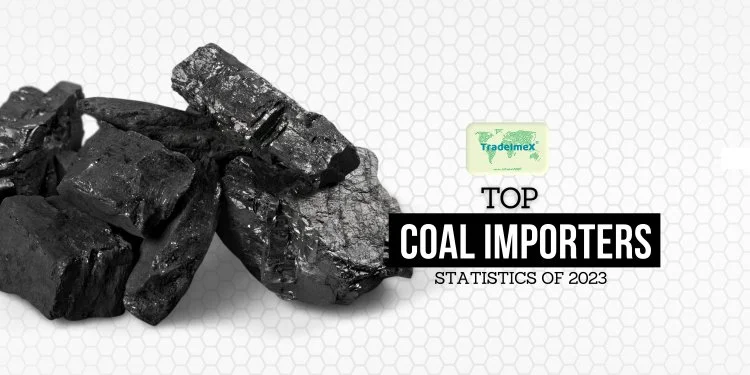Introduction
In 2023, the global coal import market saw significant activity. Countries worldwide depended on coal for energy, steel production, and various industrial processes. This article highlights the leading coal importers, providing insight into their import volumes and the factors driving their demand.
China: The Largest Coal Importer
China remains the largest coal importer in 2023. The country’s rapid industrial growth and high energy demands fuel its massive coal imports. In addition to domestic production, China imports coal to meet its energy requirements and support its industrial sector. Stringent environmental regulations are pushing for cleaner coal and efficient technologies.
India: Rising Coal Imports
India ranks second among the top coal importers. With an expanding economy and growing population, India’s energy needs are soaring. Despite having substantial coal reserves, India’s domestic production cannot keep pace with its consumption. This discrepancy drives the country to import significant quantities of coal, primarily from Indonesia, Australia, and South Africa.
Japan: Steady Coal Importer
Japan, with limited domestic energy resources, heavily relies on coal imports. The country prioritizes stable energy supplies for its industries and households. Japan’s coal imports remain steady, ensuring energy security and supporting its industrial base. Advanced technologies and stringent regulations are implemented to minimize the environmental impact of coal consumption.
South Korea: Consistent Coal Demand
South Korea is another major coal importer. The country’s industrial sector, especially steel production, depends on coal. South Korea imports high-quality coal to ensure the efficient operation of its industries. Efforts are underway to balance coal imports with renewable energy initiatives to reduce carbon emissions.
Germany: Balancing Coal and Renewables
Germany’s energy strategy involves a mix of coal and renewable energy sources. Despite a strong push for green energy, coal imports remain essential to ensure a stable energy supply. Germany imports coal to support its industrial sector and maintain energy reliability during the transition to renewable energy.
Turkey: Increasing Coal Imports
Turkey’s coal imports have seen a significant increase. The country’s growing industrial sector and rising energy needs drive this trend. Turkey imports coal to supplement its domestic production, primarily from Russia and South Africa. The government is also focusing on diversifying energy sources to ensure long-term sustainability.
Factors Influencing Coal Imports
Several factors influence coal import patterns globally. Economic growth, industrial demand, and energy policies play crucial roles. Countries with high industrial activity and limited domestic resources are major coal importers. Environmental regulations and advancements in clean coal technologies also impact import decisions.
Conclusion
In 2023, the dynamics of coal imports reflect the economic and industrial realities of various countries. China, India, Japan, South Korea, Germany, and Turkey are among the top coal importers, driven by their unique needs and circumstances. Understanding these patterns helps in assessing global energy trends and the future of coal in the energy mix.

